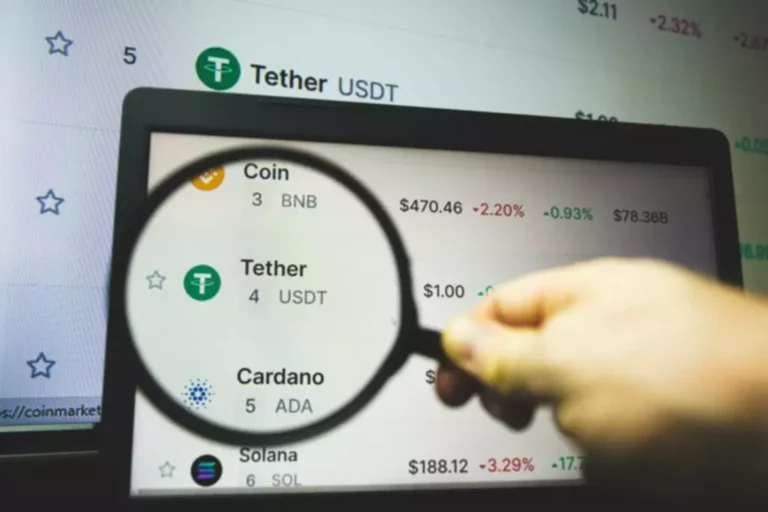On the other hand, crypto tokens have more use cases such as for governance, voting, data funding, smart contracts, metaverse money, and specific DeFi protocols. Cryptocurrencies https://www.xcritical.com/ basically refer to the native asset of a blockchain network. You can trade cryptocurrencies or use them as a medium of exchange and even as a store of value.

Each network has its founder and some have completely opposite use-cases. For example, on a proof-of-work blockchain, miners must solve complex mathematical equations which take an incredible amount of computational power. This requires specialized equipment and can pros and cons of token economy consume a lot of increasingly expensive energy. On a proof-of-stake network validators must lock up huge amounts of funds as collateral in a process called crypto staking. If you send a transaction on the Ethereum network, for example, you’ll pay a fee in ETH.
Cryptocurrency coins vs. tokens: an in-depth look
If you’re looking to invest in a cryptocurrency long-term, you may want to invest in a coin like Bitcoin or Ethereum. A security token is a digital tokenized form of a traditional security. The easiest route is to use special ready-made solutions for token generation. It could be as simple as creating your own website with a website builder. If you want to start lending, borrowing and more, then why trust a service that retains custody over your assets?
That is, you can buy coins in the hopes that their price will go up to sell them at a profit. Another notable mention among the use cases of crypto tokens refers to digital user identities. For example, the Civic token offers a decentralized digital identity solution. The Civic token can support verification of access to different digital services.
Tokens, on the other hand, have opened up many additional avenues that will increase the execution and practical use of decentralized applications (DApps), Web3, and smart contracts. Tokens are what are primarily used to interact with these decentralized applications and to facilitate transactions. Cryptocurrencies and crypto tokens may appear similar but serve very different purposes in the blockchain ecosystem. Cryptocurrencies incentivize people to run nodes and validate transactions, while tokens harness the power of smart contracts to unlock the potential of Web3 and DeFi. First of all, you need to note that cryptocurrencies can serve only as a medium of exchange and store of value. Blockchain networks can incentivize users with cryptocurrencies for securing the network.

Blockchains rely on cryptocurrency to incentivize individuals, groups, and sometimes even organizations to run the network. To understand why financial incentive is necessary, it’s helpful to know—very generally—how blockchains work. Therefore, tokens offer a different level of functionality distinct from that of coins, which are used for making or receiving payments on a blockchain. The term crypto token is often erroneously used interchangeably with «cryptocurrency.» However, these terms are distinct from one another. A smart contract is a self-executing program that automates transactions. Contrary to popular belief, the terms of the contract are not written into the lines of code.
What’s Wrapped Bitcoin?
On a very simple level, coins offer the basis of a secure network, while tokens allow for blockchain apps and platforms to build upon that base. Understandably, many developers want to focus on building their Web3 games, DeFi protocols, or other DApps without worrying about building the blockchain they’ll live on. For all these reasons, developers will often issue tokens rather than full cryptocurrencies.
- Bitcoin, for example, is a coin because it has its own blockchain (known as the Bitcoin blockchain).
- Crypto tokens, on the other hand, are available as programmable logic in smart contracts which have been deployed on existing blockchain networks.
- After the launch of the project, tokens serve as their currency and provide customers with access to various features.
- 1) Blockchain – Both cryptocurrencies and tokens exist and trade on blockchain networks.
- As you might already know, blockchains require crypto miners or validators to secure the network and process transactions.
This native coin is what network participants receive in return for keeping that network secure. This key use-case has built the base of the cryptocurrency market as we see it today. The core tenets of blockchain technology, transparency, provenance and immutability, have the power to change the financial market as we know it. Mastercoin was one of the first projects to describe using layers to enhance a cryptocurrency’s functionality. Second, cryptocurrency coins have a more established infrastructure than tokens.
What Is the Difference Between a Crypto Coin and a Crypto Token?
In fact, the category of tokens didn’t take off until Ethereum introduced smart contract technology. Smart contracts make it easier for developers to launch dApps (decentralized apps) using blockchains like Ethereum. Understanding the difference between a coin vs a token is important for any cryptocurrency enthusiasts planning to dive deep into the crypto world. The in-depth description of coins and tokens in this article should help you to avoid confusion with crypto terms. Security token holders do not have any ownership rights to the entity which issued the tokens.
Crypto coins are designed to be used as currency, while crypto tokens are intended to represent an interest in an asset and facilitate transactions on a blockchain. The main difference between cryptocurrency coins and tokens is that coins are their own blockchain, while tokens rely on other blockchains. Another important use case of cryptocurrencies is the facility for international payments. The example of XRP cryptocurrency of Ripple blockchain network facilitates real-time international transactions with better speed and ease. Without any complicated and centralized counterparty approval and clearance processes, XRP can serve efficient international remittances without any complexities.
Smart contracts are basic protocols for automating transactions according to mutually agreed conditions in contracts. The use of smart contract-based crypto tokens can introduce many value advantages in different industries, such as real estate sector. For example, crypto tokens can serve a crucial role in automation and decentralization of property sales procedures.
Along with this growth, there is increasing confusion surrounding different terms in the industry. This article will attempt to explain the critical differences between these two concepts. This article will explain what unique characteristics set coins and tokens apart from each other. Knowing what is a token vs a coin can be important when deciding which cryptocurrencies to use or invest in. Depending on what someone wants to achieve in the crypto ecosystem, they may have to decide whether to use a coin vs a token.
Crypto Tokens vs. Cryptocurrencies
Whitepapers read like pitchbooks, outlining the token’s purpose, how it will be sold, how the funds will be used, and how investors will benefit. For example, they can represent an asset, such as a physical good or a currency. They can also be used to give users access to a service or application. In the case of Ethereum, tokens are used to fuel transactions on the network. A token is a digital asset that is built on top of another blockchain. Tokens can represent anything from a physical object to a virtual currency.
One of the foremost applications of crypto tokens emerges from the smart contract functionalities available with them. Coins primarily serve as a payment cryptocurrency, while tokens, on the other hand, can have a variety of use cases. They can represent an asset, give access to unique services, or even represent a piece of digital art. Some utility tokens also offer discounts, rewards, or additional benefits to token holders. If that is not the case, it represents a hybrid of a security and utility token.
Back when Bitcoin (BTC) was the only cryptocurrency, there was no need to distinguish digital assets. However, when Ethereum (ETH) launched in 2015, it introduced a new class of cryptocurrencies known as digital tokens. Unlike «coins» built on their native blockchains, tokens exist on top of a pre-existing smart contract blockchain. Unfortunately, the terminology is confusing because these crypto tokens (similar to crypto coins) are blockchain-based assets (like coins) that have value and can be sent and received. In simple terms, you can think of cryptocurrencies as limited-use entities and crypto tokens as the flag bearers of opportunities in decentralization.
For example, crypto tokens can open up new roads for representing physical assets on blockchain networks. Learn more about the crypto world and how digital assets will evolve in this space in future. However, crypto tokens are a completely different category of digital assets. Crypto tokens can also serve as a store of value and medium of exchange like cryptocurrencies.
